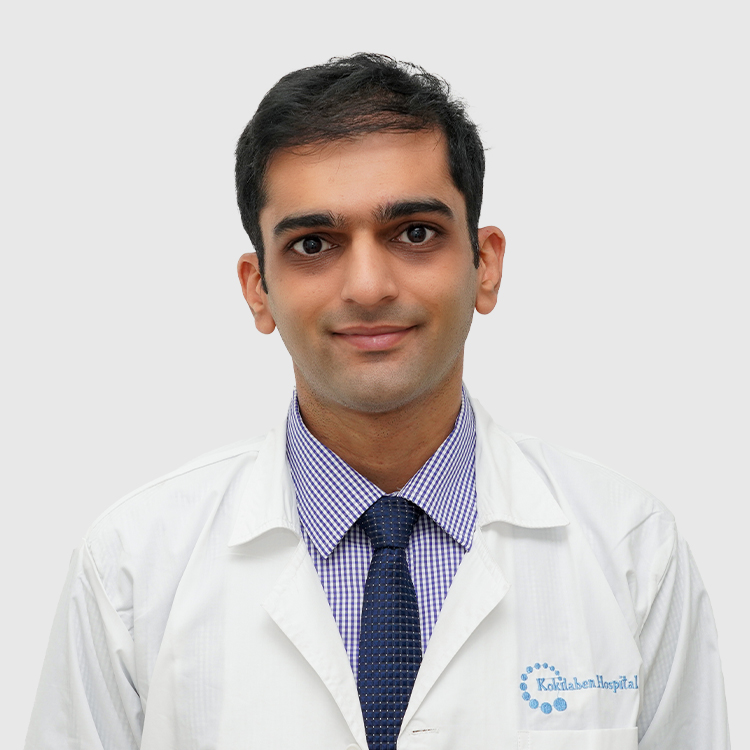Soft tissue sarcoma often presents with subtle symptoms that can be mistaken for other conditions. Early warning signs include:
If you notice any of these symptoms, consulting a medical oncology expert is crucial for early diagnosis and treatment. Kokilaben Dhirubhai Ambani Hospital is one of the best hospitals for sarcoma treatment in Mumbai, India and offers comprehensive care and diagnostic services.
While the exact cause of soft tissue sarcoma remains unclear, several risk factors may increase the likelihood of developing this type of cancer:
Understanding these risk factors can guide individuals to take preventive measures and consult with renowned soft tissue sarcoma treatment doctors in India for regular screenings if they fall into higher-risk categories.
Soft tissue sarcoma is classified into four main stages based on the size of the tumor, its location, and whether it has spread to other parts of the body:
Understanding the stage of the cancer is vital in creating a treatment plan. In sarcoma cancer treatment in Mumbai, India, specialized teams of oncologists determine the best approach to combat the disease, considering the individual patient’s condition.
Imaging tests including radiographs, MRI and/or CT scan
Biopsy (a procedure to remove a sample of tissue from the tumour for laboratory testing).
PET scan, CT scan of chest and ultrasonography of draining glands, etc
It is recommended that your biopsy be done at the cancer centre where you will receive treatment. Evaluation at a cancer centre that treats a large number of sarcoma patients and has a specialised sarcoma management team improves chances of correct diagnosis and treatment and reduces the risks of relapse. A wrong biopsy may cause cancer to spread.
Treatment for soft tissue sarcoma often involves a combination of surgery, radiation therapy, and chemotherapy, depending on the stage and type of tumor. Surgery remains the most effective treatment, aiming to remove the tumor entirely while preserving as much healthy tissue as possible. For advanced cases, radiation or chemotherapy may be recommended to shrink the tumor before surgery or eliminate any remaining cancer cells.
We at Kokilaben Hospital are using Brachytherapy as a preferred radiation modality for the management of these tumours. Brachytherapy involves placing the radiation catheters during surgery and giving radiation through these catheters, helps in reducing the treatment time of radiation from 30 days to 6 days, lesser radiation to surrounding structures and a better function.
| Stage I | 80-90 per cent |
| Stage II/III | 60-65 per cent |
| Stage IV | < 40 per cent |
The only way to prevent some soft tissue sarcomas is to keep a check on all the risk factors. Most sarcomas, however, develop in people with no known risk factors, so there is no way known at this time to prevent most cases. For people receiving radiation therapy, there is usually little choice. However, if you have risk factors, its a good idea to discuss them with your healthcare provider and get a proper evaluation.
In September 2015, a middle-aged man, aged 44, complained of severe pain and swelling in his right thigh. He was diagnosed with a femur fracture, following which he underwent an operation in the UAE and returned to India. The pain returned in a few days; hence, he approached another hospital in India. There, he was evaluated and diagnosed with a benign bone tumour. As a benign tumour doesnt spread, he believed there wasnt much cause for concern. Regular follow-ups and medication should have relieved him from pain. However, the problem persisted despite undergoing the suggested treatment. He then approached Kokilaben Hospital in December 2015, where he was further evaluated and diagnosed with a high-grade sarcoma of the bone.
Staging procedure was carried out and neo adjuvant chemotherapy was given to the patient. He underwent total femur excision in view of his previous surgery and local disease contamination. Reconstruction was done with a total femur prosthesis replacing both his hip and knee joints.
On the very next day of the surgery, the patient could walk, carrying his complete body weight. He is currently receiving adjuvant chemotherapy.

Bone & Joint/Orthopaedics, Cancer
Bone & Soft Tissue Tumors – Sarcoma treatment, metastases management Limb Salvage & Reconstruction – Megaprosthesis, 3D-printed implants Minimally Invasive Pediatric Tumor Surgery – Joint-preserving procedures Navigation-Guided Tumor Surgery – Precision-driven cancer surgery Extended Curettage for Benign Tumors – Bone cysts, giant cell tumors Pathological Fractures & Metastatic Bone Disease – Advanced care solutions Innovative Bone Recycling Techniques – Extracorporeal irradiation, custom implants Rotationplasty & Complex Limb Reconstruction – Functional preservation techniques